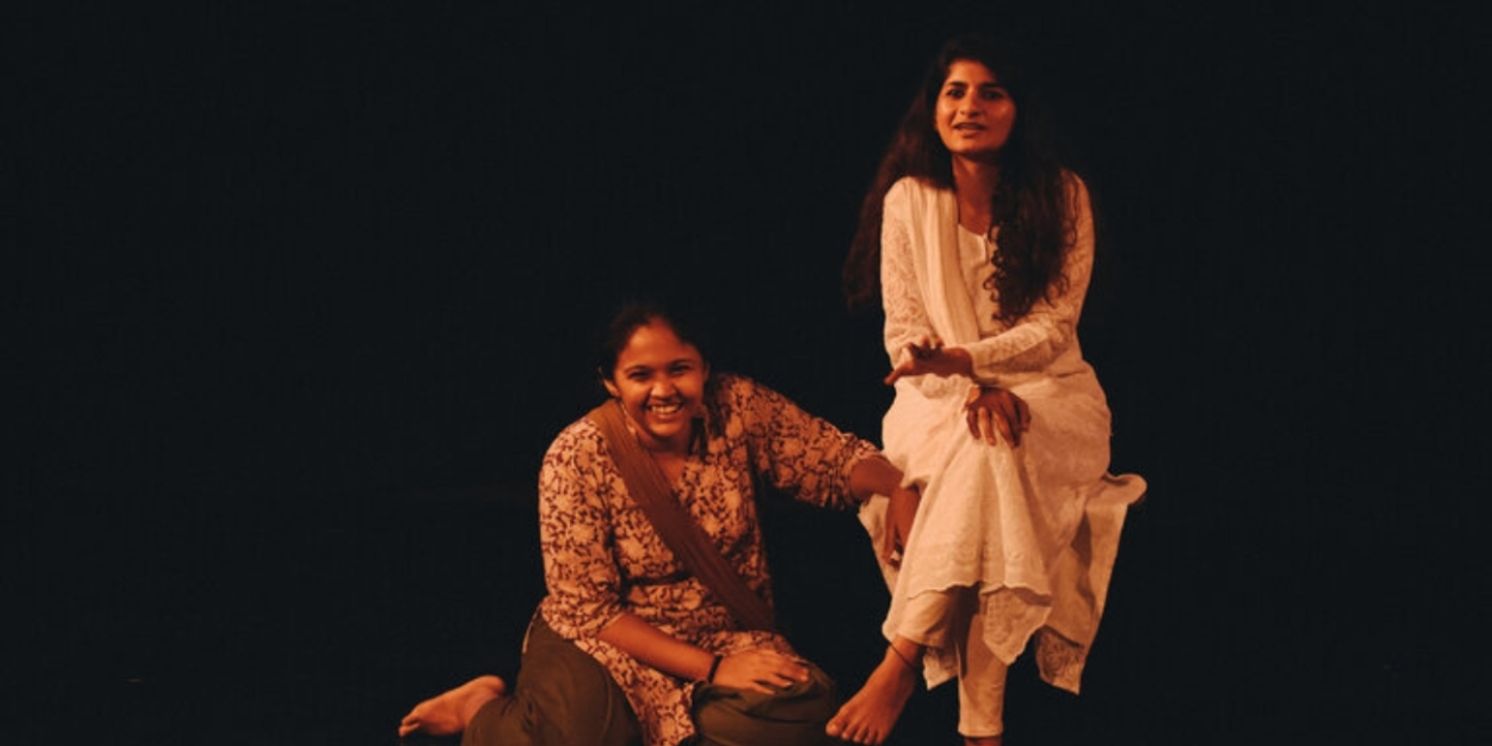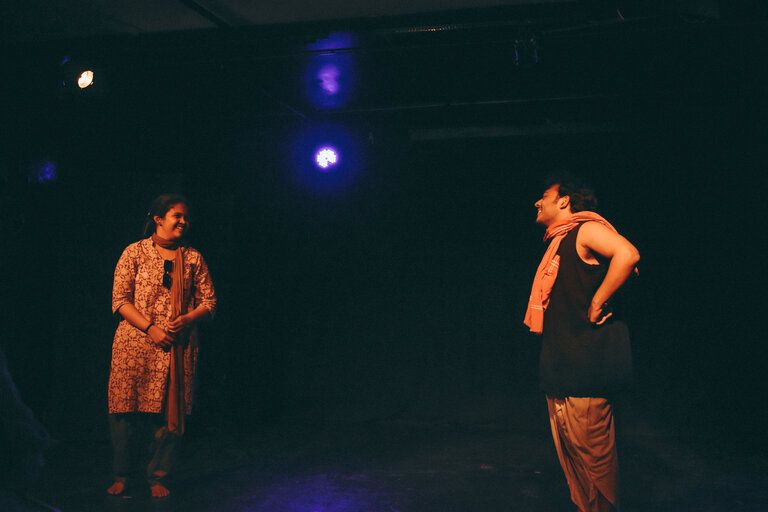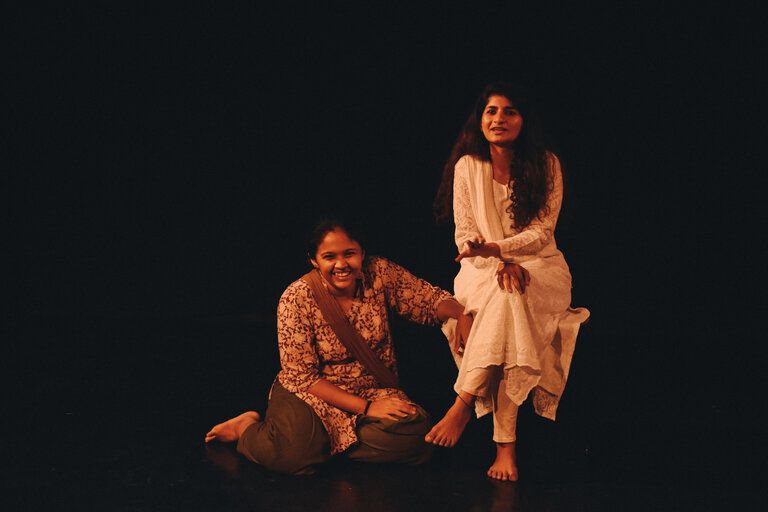
'Jaat UtPaat' chronicles the story of three characters chasing each other in the maze of love in a world drenched in casteism. Their fate is tied to their birth and the story does not attempt to subvert it. Throughout my viewing of the production, I was unable to forget the archaic notions perpetuated by the plot, hindering my appreciation for the form and dramaturgy.
 Only in Mumbai can a play begin with a monologue presented by a character with a “tapori" accent and quickly blend into a “Bhojpuri” accent, with no context or no impending need. For a play set in the interiors of the Hindi heartland of North India, the plot for ‘Jaat Utpaat’ by the CourtJester Collective revolves around a casteist hate crime that happens on the night of “Ganpati Visarjan.” Despite the Instagram-ification of all festivals, I believe Ganesh Chaturthi is yet to become an event of any significance in the Hindi belt.
Only in Mumbai can a play begin with a monologue presented by a character with a “tapori" accent and quickly blend into a “Bhojpuri” accent, with no context or no impending need. For a play set in the interiors of the Hindi heartland of North India, the plot for ‘Jaat Utpaat’ by the CourtJester Collective revolves around a casteist hate crime that happens on the night of “Ganpati Visarjan.” Despite the Instagram-ification of all festivals, I believe Ganesh Chaturthi is yet to become an event of any significance in the Hindi belt.
I wish the creator’s vision was restricted to a callous setting for the play, but unfortunately, it seemed to extend into stereotypical representations of the “upper caste” and “lower caste” characters, all drowning in the perpetual doom associated with their names. Further, ‘Jaat UtPaat’ is one of the many plays in Mumbai from the recent past that contemplate hell and heaven, the day of judgment after all good and bad deeds. It has become a convenient deus ex machina for plays centred around moral apprehensions, where the fate of all characters is chucked at the Gods. Such a quick solution devoids the play of complexity and sometimes empties all the effort gone into the world-building and action of the play.

Despite the shortcomings, all three performances by actors Ruhi Alve, Sayan Chaudhuri, and Mayuri Ravindra were captivating. Ruhi Alve’s opening monologue was a tremendous burst of energy and her revenge-seeking character was the life of the play. Further, the play frequently broke the fourth wall to address the audience directly, in addition to the meta-theatre in the story. It was interesting to learn and unlearn the events of the story from three different perspectives, unearthing the casteism that always circumvents the truth in India.
Reader Reviews
Videos

